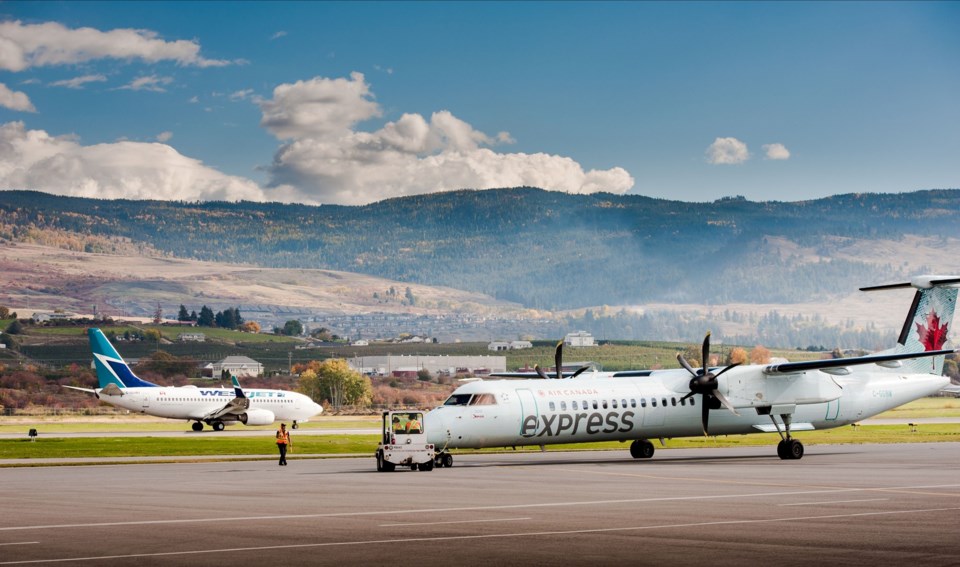Kelowna International Airport has shut its surrounding airspace as wildfires rage around the city.
A bulletin posted to the airport’s website says it has closed the airspace to “allow aerial fire-fighting activity for the wildfires in the Kelowna area.”
The airport says it’s working with the BC Wildfire Service and federal authorities to resume operations.
“However, the priority is the safety of our community and to allow access to the airspace required by aerial firefighters,” noted the bulletin.
“We appreciate travellers’ patience with this evolving situation. As with any adverse weather situations, travellers are reminded to check in with their airline for the most up to date flight information before coming to the airport.”
Damage to homes uncertain as fire continues to burn
The airport closure comes as emergency services continue fighting the McDougall Creek wildfire in and around Kelowna.
The BC Wildfire Service says the fire has grown to an estimated 6,800 hectares. On Thursday night, with 2,462 properties have been evacuated with another 4,801 on evacuation alert, buildings around the area could be seen burning.
By Friday morning, emergency management operators said it wasn’t clear how many structures had been lost.
RCMP units will be setting up road blocks and carrying out roving patrols to ensure nobody remains in the in the path of the fire or the people trying to contain it, a spokesperson said.
Firefighters from across B.C. have descended on Kelowna to help control the fire and save people and property. Fire trucks have been seen from as far away as Kamloops, Hope, Delta and several communities on Vancouver Island.
West Kelowna Fire Chief Jason Brolund said the fire Thursday night was unlike anything he had ever seen. Brolund described situations in which first responders were trapped because they went to rescue people who chose to stay behind. In the end, nobody has been seriously injured.
“It was one of the most challenging nights of firefighting in our history,” said the chief.
“We fought a 100 years worth of fires all in one night.”



